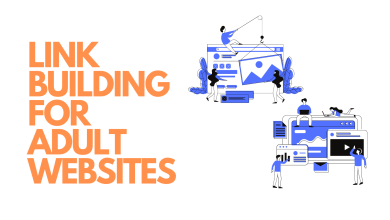What Impact Can Blockchain Have On Art And Politics?
What Impact Can Blockchain Have On Art And Politics?

The technology behind Bitcoin, known as the blockchain, is its best-known IT Consulting Firms New York. A blockchain can make it possible for traders to transact money directly with one another without the need for a central authority figure or another third party to monitor or regulate the money being transferred. Bitcoin almost immediately gained enormous popularity among traders worldwide after its launch in 2009, and its group of devoted supporters has grown over time. The blockchain is unquestionably greatly responsible for this success.
The blockchain maintains a decentralised distributed ledger that is shared by all network participants and records all information about transactions on the chain. Also, blockchains are immutable, making it nearly impossible to change or delete any stored data. Crypto traders are most drawn to blockchains because of their transparency and decentralisation.
The majority of blockchain’s applications to date have been in the decentralised finance industry, but the technology has the potential to disrupt markets far outside the cryptocurrency industry. Many people have recently started to understand that one of blockchain’s greatest advantages is that it can enhance current systems and technologies.
For instance, Georgia already uses blockchain to register land titles. Cloud storage, self-executing smart contracts, identity management and verification, crowdfunding, and healthcare are just a few of the other industries that blockchain has impacted.
Two fields that stand to gain significantly from integration with blockchain technology are politics and the arts. This article examines how blockchain may impact various facets of our daily lives, including politics, the arts, and other fields.
Blockchain in Politics
Blockchain technology in politics seems unlikely. But consider. Using blockchain in politics creates opportunities for innovation in international politics, especially the electoral process.
Let’s start by discussing the effects of blockchain voting. Due to its encryption, transparency, and immutability, blockchain can bring the entire voting process online while maintaining the highest security level. Modern voting systems require voters to be physically present at polling places. Additionally, even if the security of a blockchain-power voting application’s internet connection is compromise, no other nodes on the network will be impact because even if a hacker gains access to the open network, they will not be able to influence any of the other nodes already in place.
Blockchain technology allows voters to vote anonymously without revealing their identities or political preferences. Each voter could be given a wallet as a blockchain voting user identifier and a coin to vote. The blockchain’s distributed ledger structure would store votes in many independent nodes. Blockchain voting eliminates manipulation and false identities, ensuring electoral integrity. Each user ID has one vote.
We’ve seen blockchain voting in action. In November 2018, the Thai Democrat Party held the first significant blockchain-based election using ZCoin.
A company called Horizon State is actively attempting to use blockchain in politics. They suggest voters cast ballots from a computer or mobile device using HS tokens. This voting system can increase participation and be useful for making decisions in a setting where power and resources are share. Other platforms include Blockchain Technologies Corporation’s protocol to integrate blockchain in voting with paper ballots and Follow My Vote, a blockchain project that enables secure, anonymous voting.
In blockchain-based politics, citizens can directly propose governance changes to administrators and run polls to express their opinions. Blockchain improves international politics and voter turnout.
Can Blockchain Also be the Future of Art?
Because it facilitates direct communication between the buyer and seller, blockchain is primarily suite for the art market. Blockchain in the art world can develop a platform that equally benefits artists and collectors.
First of all, blockchain can guarantee an artwork’s authenticity and ensure that the artist makes money from it. Particularly in the modern era, as more and more artists produce digital artwork, their creations are also being stolen and distribute without permission. Artists can, however, prove that their works belong to them by registering them on a blockchain network when using blockchain in the arts. Blockchain guarantees that artists receive the right payment for their work and can communicate directly with customers.
The blockchain has a wide range of artistic applications. Check out this image from DisruptorDaily.
Regarding collectors, there will be no question regarding the authenticity of the piece of art an investor is about to buy thanks to the Best blockchain technology company because the owner of the piece can be easily found using the blockchain ledger. That is the main idea behind NFTs (non-fungible tokens), which have gained enormous popularity in 2021. NFT platforms have been thriving, and artists like Beeple have sold their NFTs for millions of dollars. Artists can register their work and have it time-stamped on the ledger through organisations like Verisart and Codex. In this way, collectors can easily access information about works of art.
It will be interesting to see how blockchain affects the art world.What About Blockchain’s Impact on Other Aspects of Our Lives?
Numerous blockchain applications are possible in daily life. Because of its transparency and security, blockchain is the best cybersecurity technology. Blockchain in the public sector can protect public records, store federal government data, and improve public administration transparency.
Blockchain in retail can increase consumers’ trust in online shopping by giving them complete product information, such as the date of manufacture, the materials used, etc. Blockchain’s application to traditional finance can result in affordable and simple-to-use financial services and products. In the healthcare industry, blockchain can do wonders by maintaining the integrity of patient databases and streamlining the supply chain.
Blockchain’s tamper-proof, permanent databases and security could increase authenticity, transparency, and public participation in areas that impact our daily lives.
RisingMax is thrill to see blockchain technology change the world every day.



